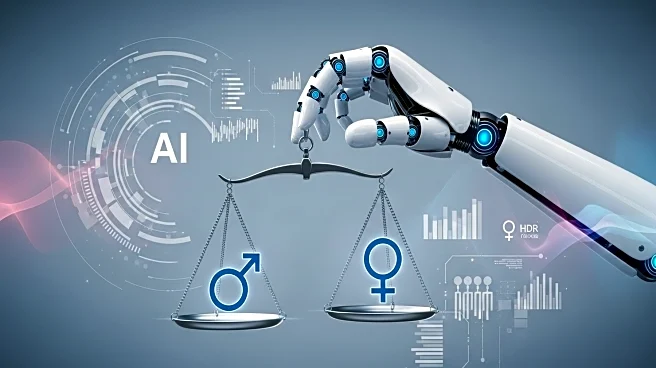What is the story about?
What's Happening?
Artificial intelligence (AI) is poised to play a significant role in transforming gender representation in marketing. While AI has the potential to reinforce existing gender stereotypes, it also offers opportunities to identify and address unconscious biases in advertising campaigns. The technology can analyze sentiment and behavior patterns across diverse female demographics, providing insights that traditional focus groups might miss. AI-powered tools can flag gender bias before campaigns launch, potentially moving beyond stereotypical portrayals of women. However, AI systems inherit biases from their training data, which can perpetuate stereotypes if not carefully managed. The challenge lies in using AI to augment human understanding of culture and equality, rather than replacing it.
Why It's Important?
The integration of AI in marketing could significantly impact how women are represented in advertising. By leveraging AI's analytical capabilities, marketers can gain a deeper understanding of diverse female audiences, leading to more inclusive and authentic representation. This shift could help dismantle entrenched stereotypes and promote gender equality in media. However, the risk of amplifying gender bias through AI is real, as algorithms trained on biased data can perpetuate problematic narratives. Brands that successfully navigate this landscape will likely lead the next phase of the gender revolution, using AI to enhance cultural understanding while ensuring fair representation across demographics.
What's Next?
For AI to effectively contribute to gender equality in marketing, brands must invest in diverse teams to build and audit AI systems. Regular testing of algorithms across different female demographics is crucial to ensure fair representation. The future of gender representation in marketing will depend on combining AI's analytical power with human wisdom about culture and equality. Brands that approach AI with ambition and humility, while maintaining vigilance against bias, will be better positioned to accelerate the gender revolution in advertising.
Beyond the Headlines
The ethical implications of AI in marketing are profound, as the technology could either advance or hinder progress in gender representation. The potential for AI to perpetuate biases at unprecedented scales underscores the need for careful management and oversight. As AI becomes more integrated into marketing strategies, the industry must prioritize ethical considerations and strive for transparency in AI-driven processes. The long-term impact of AI on gender representation will depend on the industry's commitment to using technology responsibly and inclusively.















